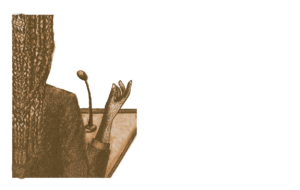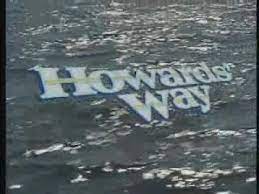So I got an email Sunday morning from Howard J. Eagle of Rochester, N.Y., accusing me and a list of others of “race hustling.” That afternoon I was hosting a paid-access virtual meeting (which I will be doing every Sunday until we’re let back out of our homes) discussing white privilege and fragility and had advertised it widely by email and Facebook.
If you live in Rochester and are involved with any effort around race, you’ve heard of Howard Eagle. Now in his sixties, this black man taught social studies in the city’s public schools for some thirty years and was an adjunct lecturer at one of the nearby universities. He holds a master’s degree in secondary education so if the issuing of a master’s degree means anything, Eagle knows what he’s talking about when it comes to the realm of educating children. Without question he is the very opposite of an unsophisticated, blow-hard simpleton.
Eagle has run for the city’s school board six times, and came out on the losing end in all six contests. Google his name and an early result shows a 2019 newspaper story where in a very public meeting, Eagle called a school board member a “vicious, compulsive liar.” She in turn questioned his financial solvency, made a personal dig at the appearance of his physical well being, and accused him of acting like a child. A commentator compared the meeting to an episode of the reality t.v. show Love & Hip Hop.
At one time a respected writer of editorial pieces for the Rochester newspaper, Howard has been banned and locked out from commenting on any of the paper’s other formats. I personally know of several people who have told me they’ve put in the time and effort to block him from every single one of their social media accounts.
Before I did my first workshop in Rochester in August of 2019, I got a series of emails from Howard expressing his cynicism (in length and detail) that my presentation could make any difference. From one of those emails:
“As you know, considering the old, historic existence, ongoing devastating nature, numerous disastrous manifestations, and overall socioeconomic, sociopolitical, and sociocultural impact of the Tripartite [individual, institutional and structural racism] Beast And Illness — being able “to participate in conversations about interpersonal and structural racism [,especially only within] their own [super-limited, minute, so-called] personal spheres of influence” (as opposed to the need for mass, ongoing, societal, dialogue EVERY DAY) — only represents a baby-step…. “
In November I was leading a workshop again in Rochester and one of the white participants asked me specifically about how to respond to Howard Eagle, as many in that room had come up against his ire on various message boards and online forums. I told them look, no doubt Howard is an uncouth, overbearing, near impossible pain in the ass. Howard is a black man who came of age in the middle of Rochester’s infamous 1964 race riots. It was a time when this city’s crown jewels of employment were Eastman Kodak and Xerox. Both companies were not only not hiring blacks beyond their lowest paying positions, they put up active resistance to doing so. Now, a comfortable new generation of white people–whose parents worked for those employers, affording them good housing and schools– want to have polite, “sacred conversations” where they can explore their relationship to race and what it all means at a non-grievous pace they get to dictate.
Frank Staropoli is somewhere around the same age as Howard. He authors a blog called A White Guy In Rochester. As I write this, Frank is “wintering” in Florida, retired and sitting pretty atop all the opportunity that Howard and his generation of black men were de facto and de jure excluded from. Instead, Howard’s generation was being pushed around by officers with german shepherds for demanding some such absurdity as the right to live wherever they want and a fair opportunity to prove themselves at a job like anyone else. The older, middle-class white people in my workshop had time to listen to me that weekend afternoon while working age black people in Rochester were scraping away at low paying jobs still trying to catch up to the wealth disparity that Howard watched three generations of redlining and job discrimination produce.
Rochester is often cited as one of the three poorest cities in America. Some say that is only true if one doesn’t count all of its metro area as an aggregate.
That’s just it, though.
The public schools of Rochester proper are now over 90% black while suburban counties–born of white flight from 1954’s federal court decision desegregating public schools, and restrictive covenant deeds forbidding home sales to black families–buttress the city’s borders. On one block is a city school that’s just had to lay off dozens of teachers to trim their budget deficit. Three blocks over, just beyond the city line, is a white school with probably a swimming pool and a library stocked with enough books, each student could take three home and there’d be plenty left for a censorship-and-decency committee to host a hardy bonfire.
Last year the Monroe County legislature passed a bill imposing stiffer fines and jail sentences against prohibited harassment of first responders (in real language, that means people taking video during questionable police interactions) seemingly out of nowhere. No one asked for this remedy. No one. Even the county sheriff and several area police chiefs publicly declared the law mootable and expressed their intention not to enforce it until a higher court examined it. Clearly that law was not intended to target Saturday morning soccer moms. If you tell me you can’t see who would have gotten hurt by this law, I’m going to say clearly you haven’t picked up a newspaper in ten years and I’m quite certain that’s not true.
When new county administrators came in later,they immediately put the kibosh on that law all together.
Jobs, housing, schooling, disproportionate interactions with the police–from Eagle’s and other blacks’ viewpoint, it almost sounds like it’s still 1964 in Rochester.
Over fifty years and three generations later, watching his brothers, nephews, cousins, neighbors being left out still, Howard Eagle doesn’t have the time or patience for “sacred conversations”. The studies, the numbers they produce, and the stories of blacks’ lived experiences bear out the facts. The only question is in what way are you, as a white person concerned with racism and inequality, prepared to show up and effect a measurable change?
Black public intellectual celebre’ du jour, Ta-Nehisi Coates, admitted when asked about it that he too is perplexed by the popularity of his very Afro-centric, no-holds-barred writing style among white consumers. “I’ve never seen white people embrace the idea of a black man talking about a world in which they are not the center of the narrative (for better or worse).” That explains the popularity of the writings of Robin DiAngelo and Debby Irving, a subject for another essay.
The retelling of suffering among blacks is not just a whetstone offered up to whites to sharpen their character and further center themselves and their growth. If preparing yourself for actionable, measurable change for others is not why you’re here on my page; not why you’re reading Frank Staropoli’s blog, going to monthly SURJ meetings, organizing rides to protests, or posting about the latest incident of racial injustice on Facebook then please,…
get out of grown folks’ way so we can get to the real business at hand.
I am intent on stirring a call to action. If all white people feel compelled to do after one of my workshops is pat themselves on the back and check off the “racial justice” box on their to-do list, then Howard is right and I am no more than a race hustler. And as long as I keep it breezy and centered on personal revelations, I could get away with that for years and make a nice living for myself off of enough white folks’ desire to merely appear engaged. I’d sooner go back to waiting tables at Friendly’s Restaurants, scooping Fribbles with my bad back and flat feet before I dishonor all the black persistence, dreams and blood that came before me in such a way.
I was brought in as the guest speaker at an all white suburban church one Sunday around the time of Martin Luther King Day. I talked about MLK’s Letter From A Birmingham Jail. In it, the icon expressed his disappointment that the southern towns’ white religious institutions weren’t emptying their pews to support the cause of fair treatment for blacks.
At my finish a woman in the front row said “wow, I don’t feel better after that.” I guess they were expecting we shall overcome and I have a dream. Yesterday a letter from the city arrived for my former upstairs neighbor– $900 fine for jaywalking. Jaywalking. He’s going to be sitting in the Erie County holding center someday soon while his already financially beleaguered family is trying to decide whether they should pay the rent this month or get him out of jail before the weekend. Over crossing the street while black.
I didn’t drive all the way down there to give back rubs, I came to reiterate that “faith without works is dead“. If anyone was feeling a lack of solace after my message it was because in their hearts they knew, like I do, that we have a lot of work to do towards our purported goals of racial equity. So let’s get to it.
I’ll probably get a nasty letter from Howard saying “I don’t need you to speak for me, how dare you represent that you know what I’m thinking, blah, blah, blah” ‘cause that’s how Howard rolls. That’s all right. I don’t really mean in this essay to single him out. I’m using him to make the point that your black friends and neighbors are waiting to see white folks do something. The time for talk and exploring our feelings is past us. As far as Howard, well, extremes serve the purpose of keeping the middle from getting complacent. The squeaky wheel gets the grease, as the idiom goes. Or to quote from the 1995 movie Dolores Claiborne, “sometimes, being a bitch is all a [person] has to hang onto.”

